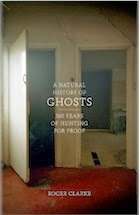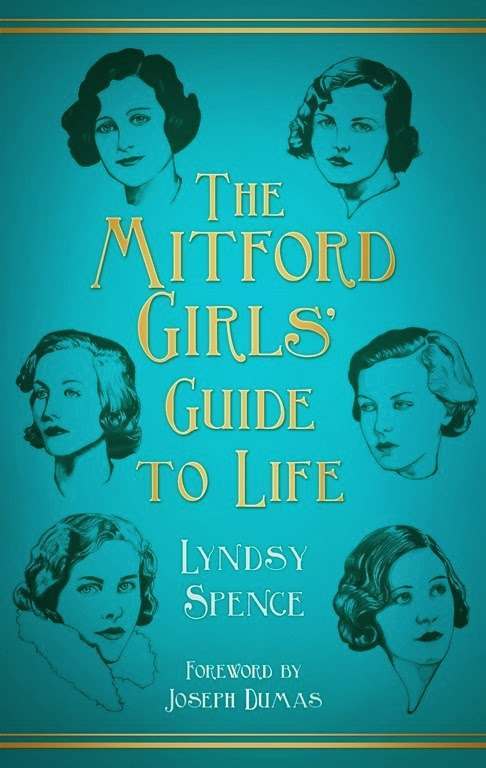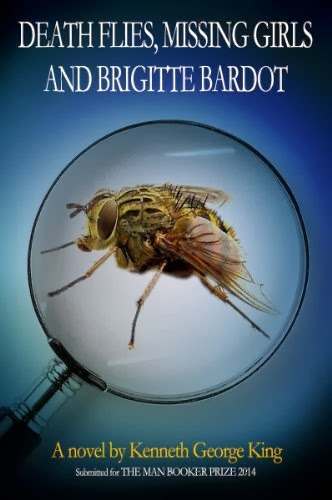The Six Best Books of the Year 2013
Madame Arcati’s Six Best Books of the Year 2013
Who isn’t trying to flog a book these days? Independent publishing is fracking vast quantities of creative gas long ignored under our nose. Kindles everywhere are growing slow on free and cheap literary downloads, perhaps one day to be read when the kids or pets have flown and the only alternative to a heart-warming phone chat with one of Esther Rantzen’s Silver Line Friends is that book you meant to read 20 years ago.Excellent books are there to be found, and here’s Madame Arcati’s brief guide to the six best this festive season (all titles hyper-linked to Amazon):
Madame Arcati’s Most Excellent Book of the Year
A Natural History of Ghosts: 500 Years of Hunting for Proof by Roger Clarke
 Divine, darling. Or, as Craig Revel Horwood might say if not too busy eyeing up male dancer buttock curvature, ‘fab-u-larse!’ Published last year, the paperback released a few weeks ago, this is by far the most fascinating survey of paranormal sightings and encounters I have ever read.
Divine, darling. Or, as Craig Revel Horwood might say if not too busy eyeing up male dancer buttock curvature, ‘fab-u-larse!’ Published last year, the paperback released a few weeks ago, this is by far the most fascinating survey of paranormal sightings and encounters I have ever read.
Ingenuity starts at concept stage. Clarke sets out not to debate whether ghosts exist. He is much more interested in the anthropology of spectral experiences and research – or put another way, in relating true-life ghost tales, the ‘scientific’ attempts to understand them and in classifying the different types of spook: elementals, poltergeists, etc.
This is clever and fortuitous because Clarke knows he’d lose most of his mainstream critical audience if he entertained the notion, even for a moment, that ghosts exist as sentient post-mortem entities. One feature of secularism and atheism is the absolute conviction that life starts and ends with synaptic crackle ‘n’ pop. But there’s no question people have ghostly liaisons. I have seen a ghost. You probably have. Pliny wrote of a haunted house in 100 AD. The materialist will flesh out any unscientific explanation-away provided no concession is made to afterlife drivel. The winner is not rationalism but a replacement irrationalism.
Clarke knows all this as a veteran Poirot of psychical inquiry. So instead he sits us down by a log fire, creeps us out with weird tales, documents the countless vain attempts to solve the mystery of hauntings and treats the topic (of ghosts) as an aspect of immemorial human experience.
Clarke writes tremendously well – an essential component of any effects-driven tale both to satisfy the Bunsen burner know-all and trembly Susan Hill addict. The slightest hint of irony here and there gives sceptics their calorific fill while oo-ee-oo narrative pleases the rest of us. He is unafraid of the plodding nature of prose, the focus on patient set-ups – Gore Vidal called this vital writerly process ‘grazing’. The cow’s temperament is vital to story-telling.
I also commend Clarke’s end notes which combine scholarly learning with a sly sense of humour. At the very least you end up sceptically well-informed and enthralled.
Madame Arcati’s Most Promising Foreplay Read of 2014
The View from the Tower by Charles Lambert
 One of the joys of reading is the foreplay. Before immersion I like to examine covers, read blurbs, savour hints in reviews or previews, gaze at the author pic (if any), perhaps tantalise myself with a glimpse of the first and last pages (I am intolerant of sequence and secrets – no author will control moi). Charles Lambert is new to me, I have not read his fiction yet; but we are engaged in foreplay (one-sidedly I hasten to add). I am sampling his work at present. I intend to go all the way with his novelThe View from the Tower, published on 2 January 2014.
One of the joys of reading is the foreplay. Before immersion I like to examine covers, read blurbs, savour hints in reviews or previews, gaze at the author pic (if any), perhaps tantalise myself with a glimpse of the first and last pages (I am intolerant of sequence and secrets – no author will control moi). Charles Lambert is new to me, I have not read his fiction yet; but we are engaged in foreplay (one-sidedly I hasten to add). I am sampling his work at present. I intend to go all the way with his novelThe View from the Tower, published on 2 January 2014.
This is the second in a Rome-set trilogy, so really I ought to consummate with the first in the series,Any Human Face (published in 2011). ‘A dark and fast-paced literary thriller about love, sex, art and death,’ is the terse description. I have the book in front of me. On the cover, a slim man in a black suit gazes warily up an ancient alleyway. An old-style pale blue motor scooter before him startles the period monochrome. Is the man hunting or being hunted? I don’t know.
I may read Any Human Face first. It has Malaysian nuns killing time at a second-hand bookstall – a sufficiently kinky observation to grab my attention. I suspect Lambert notices much that is surprising. I can smell his curiosity and his taste for the perverse.The View from the Tower is ‘a psychological thriller about love and betrayal, and the damage done when ideals and human lives come into conflict.’ But I suspect it’s rich in peculiar detail, too. That’s what I want. Isn’t foreplay fun?
Madame Arcati’s Best Poppet Book of the Year 2013
Sleeping With Dogs: A Peripheral Autobiography by Brian Sewell
 I just know I would hate art critic Brian Sewell in person. That face, fixed in a state of appalled shock. That voice, strangled to last-breath whine by an odd form of hostile genteelness – the sharp chip in the Whittard of Chelsea teacup rim. In death his visage will slowly, ineluctably draw into one final pull of grotesque disapproval, perhaps impossible in life, now achievable by the new physics of rot. Not even Tracey Emin’s art could trigger such a look.
I just know I would hate art critic Brian Sewell in person. That face, fixed in a state of appalled shock. That voice, strangled to last-breath whine by an odd form of hostile genteelness – the sharp chip in the Whittard of Chelsea teacup rim. In death his visage will slowly, ineluctably draw into one final pull of grotesque disapproval, perhaps impossible in life, now achievable by the new physics of rot. Not even Tracey Emin’s art could trigger such a look.
Yet even a glorious c**t has his good side. Should you have a tail, a long tongue and a readiness to shit in public – Brian’s all yours. Preferably, you will not bore him with actual speech but simply advertise your wants with a growl and a howl. Brian has loved 17 doggies and there’s little they can do to sour his canine fetish. One bark and I’m already thinking of RSPCA extermination. But Brian loves the constant music of dog – and the relentless me-ism, the diva presumptions, the bad breath and foul turds. Why, he has four dogs at a time in his bed.
Brian is probably correct in thinking that dogs share with us the same range of emotions, hence the peculiar show that is Crufts. What perhaps he adores about them is their immediacy and lack of guile, that unmediated need for a cuddle and a scoff and walkies that requires nothing more from us than basic delivery followed by unconditional gratitude (the dog’s).
How can one fail to be ensorcelled by evidence of the total collapse of Brian’s default snobbery and disdain in the presence of his best friends? Meanwhile, dog walkers should continue to place street dog turd in plastic bags. Such sights please me no end.
Madame Arcati’s Most Wondair Book of the Year 2013
The Mitford Girls’ Guide to Life by Lyndsy Spence
 I reviewed this delightful book back in August (clickhere) and am not in the least surprised at its success. It’s quirky, quintessentially English (which is odd because Lyndsy is Irish – I think), a guide and etiquette book of sorts but also a wallow in 20th Century interwar eccentricity. Daffy is another word that comes to mind.
I reviewed this delightful book back in August (clickhere) and am not in the least surprised at its success. It’s quirky, quintessentially English (which is odd because Lyndsy is Irish – I think), a guide and etiquette book of sorts but also a wallow in 20th Century interwar eccentricity. Daffy is another word that comes to mind.
Lyndsy has gutted the lives of the Mitford girls and turned them into parables, bullet point social codes and how-to guidance to live this life successfully. From Unity’s fixation on and pursuit of Hitler we learn: ‘Don’t rush head first into an encounter with your idol as this will label you as another fan. Edge your way in slowly and discreetly.’ This example does raise a question over the precise location of Lyndsy’s tongue at times (in cheek, perhaps?) but there is sufficient quantity of information on the Mitford lives to reassure on overall deadpan purpose. Certainly I learnt a great deal more about the Mitties.
Lyndsy Spence is an author to watch. She is very young – and driven by a passion for old school glamour and style. Not only has she founded The Mitford Society with a large following but she has found time to release the first of the The Mitford Societyannuals which comprises many features and essays on the aristocratic clan. One piece is authored by me – I take you to the Arcati Horoscope Revue Bar where we learn more about the astrology of the gels as stripper potential is appraised. It’s all done in the best possible taste.
Madame Arcati’s Most Peculiar Novel Award 2013Death Flies, Missing Girls and Brigitte Bardot by Kenneth George King
 Quite the oddest book I ever did read is this outré and outrageous nugget which bears the name Kenneth George King. Call me a spoilsport but one may as well know that the author is Eurovision’s very own bastard son and general vile perv, Jonathan King – the man who gave us Everyone’s Gone To The Moon. This fact alone will cause certain flowers to wilt. But hardier annuals and the odd cactus or two will be rewarded in their staying power. By the end of this book you will be dreaming about flies, naked boys and sex stars and other causes of ruin. JK has well and truly gone over to the surreal side – and the result is something most interesting.
Quite the oddest book I ever did read is this outré and outrageous nugget which bears the name Kenneth George King. Call me a spoilsport but one may as well know that the author is Eurovision’s very own bastard son and general vile perv, Jonathan King – the man who gave us Everyone’s Gone To The Moon. This fact alone will cause certain flowers to wilt. But hardier annuals and the odd cactus or two will be rewarded in their staying power. By the end of this book you will be dreaming about flies, naked boys and sex stars and other causes of ruin. JK has well and truly gone over to the surreal side – and the result is something most interesting.
Now that we live in a world of Twitter and gnomic ejaculation, King has produced what seems like a cut-up novel thrown together kaleidoscopically for attention deficit consumption. This is not quite Burroughs cut-up style but the many autobiographical bits strewn through the narrative have a snip-snip-paste quality. We learn quite a lot about prisons, Arab straight boys who like homosex, Barbara Windsor, a bit about Bardot of course and her right-wing husband, and, oh, glam hot places where JK goes for his hols. And about police procedure.
But what’s it all abaht? Well, yes. Good question. There is indeed a car accident in Morocco. And girls go missing in England, as the blurb promises. A killer lurks and plots and an old ‘superb’ detective sniffs. Flies offer clues of sorts. Different voices tell us what they see and do, not all of their perspectives entirely relevant; but always fascinating. That’s what it’s all abaht.
We are told on the cover that the novel has been submitted for the Man Booker Prize 2014. If an astrology novel can win, so can this.
Madame Arcati’s Novella of the Year 2013You’re Never Too Old by Fiona Pitt-Kethley
 The world could do with a few more Fiona Pitt-Kethleys. Here’s a woman who could give Boudicca a run for her money. I love her poetry. I adore the stories about her. Non-payers will soon discover what I mean. You cross Fiona at your peril. She lives in Spain with her chess champion husband and family and cats. She cooks.
The world could do with a few more Fiona Pitt-Kethleys. Here’s a woman who could give Boudicca a run for her money. I love her poetry. I adore the stories about her. Non-payers will soon discover what I mean. You cross Fiona at your peril. She lives in Spain with her chess champion husband and family and cats. She cooks.
Here’s the thing about her very short novel, available only on Kindle at 77p. It’s not about James Bond – it can’t be because the Ian Fleming estate wouldn’t permit it. No siree. No, let’s get this straight. It’s not about Bond, James Bond. It’s about James Round – a retired spy. The sort of ‘feisty oldie’ Fiona worships. Perhaps Round sees himself as a latter-day Bond. We all have our dreams. In another universe I’m a pop star. Friends with Michael.
Anyway, Round is ancient. He’s stuck in some cold hovel in Scotland. He longs to get back to his old life of action, double agenting and leg-overing nubile pin-ups. A chance meeting re-opens up his life and before you know it he’s on a spying mission to a spa in Israel with senile drunken secretary Penny. Oh the fun we have. Round ain’t passed it. It’s treble dry Martinis all round.
I love Pitt-Kethley’s droll, throw-away humour, the teasing satire and the hopeful moral for the silver surfers. Saga magazine should serialise this tale. You’ll smile and you’ll laugh.
You can get your hands on the Madame’s book her – please do.
Posted: 19th, December 2013 | In: Books, Key Posts 0 Comments | TrackBack | Permalink


